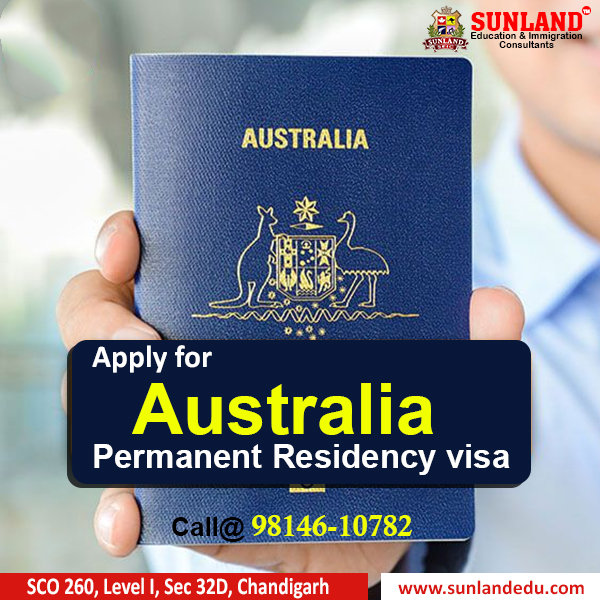Traveling to New Zealand is a dream for many, given its stunning landscapes, rich culture, and reputation as one of the most peaceful countries in the world. However, like any international travel, entering New Zealand typically requires adherence to specific visa protocols. Yet, certain travelers can enter the country without obtaining a traditional visa under what could be informally referred to as the “No Protocol Visa” framework. This refers to various visa waiver programs, visa exemption agreements, or other special circumstances that allow individuals to travel to New Zealand without going through the standard visa application process.
This essay will explore the various pathways that allow travelers to enter New Zealand without a visa. We will delve into the Visa Waiver Program (VWP) that covers numerous countries, examine specific bilateral agreements and exemptions, discuss the provisions for diplomatic and official travel, and look at other unique circumstances that permit visa-free entry into New Zealand. Each section will provide a comprehensive understanding of the conditions, benefits, and limitations associated with these travel arrangements.
Visa Waiver Program (VWP)
New Zealand’s Visa Waiver Program (VWP) is a key element of its immigration policy, enabling citizens of specific countries to visit without needing a visa for short stays, usually for tourism or business purposes. This program fosters international tourism and business, facilitating easier and more efficient travel for eligible visitors.
As of the most recent updates, citizens from over 60 countries are part of New Zealand’s Visa Waiver Program. These countries include most members of the European Union, the United States, Canada, Japan, South Korea, Singapore, and several others. For citizens of these countries, the Visa Waiver allows entry to New Zealand for up to 90 days, or up to six months for British citizens, without the need for a traditional visa. This waiver significantly simplifies the travel process, making New Zealand an attractive destination for short-term visits.
However, even under the Visa Waiver Program, travelers must meet specific requirements. Firstly, they must possess a valid passport from one of the eligible countries. The passport should be valid for at least three months beyond the date of departure from New Zealand. Additionally, travelers must have a return ticket or proof of onward travel and sufficient funds to support themselves during their stay.
An important development in New Zealand’s immigration policy is the introduction of the New Zealand Electronic Travel Authority (NZeTA). Since October 1, 2019, visitors from Visa Waiver countries must obtain an NZeTA before traveling. The NZeTA is an online authorization that travelers can apply for via a mobile app or website, and it is valid for up to two years for multiple entries. The application process is straightforward, typically taking only a few minutes, and helps enhance border security by pre-screening travelers.
While the Visa Waiver Program offers significant advantages, it also has limitations. The waiver is strictly for short-term visits; those wishing to stay longer, work, or study in New Zealand must apply for the appropriate visa. Additionally, travelers who have been previously deported from any country, or who have a criminal record, may not be eligible for the waiver and must seek a visa. Furthermore, individuals from Visa Waiver countries may still be denied entry if they fail to meet New Zealand’s health, character, or security requirements.
Bilateral Agreements and Visa Exemptions
In addition to the Visa Waiver Program, New Zealand has established various bilateral agreements and visa exemptions with specific countries, allowing for visa-free travel under certain conditions. These agreements often reflect the close diplomatic and economic relationships New Zealand maintains with these nations, and they contribute to facilitating travel for both citizens of these countries and New Zealanders traveling abroad.
One of the most notable visa exemption agreements is with Australia. Due to the close ties between New Zealand and Australia, citizens of both countries enjoy significant travel privileges. Australians can travel to New Zealand without a visa and have the right to live and work there indefinitely under the Trans-Tasman Travel Arrangement. This arrangement, which dates back to the 1970s, is based on the principle of free movement and mutual recognition of residency rights. It has been instrumental in promoting economic integration and social cohesion between the two nations.
ALSO READ: U.S.A No Protocol Visa — Travel To U.S.A, A Must Read

Similarly, citizens of some Pacific Island nations, such as Samoa, Tonga, and Fiji, may enter New Zealand without a visa for short visits. This policy reflects New Zealand’s historical and regional ties with these countries, as well as its role as a key partner in the Pacific region. For instance, Samoan citizens benefit from a special visa exemption under the Treaty of Friendship between New Zealand and Samoa, allowing them to visit without a visa for up to 90 days.
Another example of visa exemptions involves New Zealand’s agreements with certain countries for diplomatic, official, and service passport holders. Diplomats and government officials from countries like the United States, Canada, and several European nations may enter New Zealand without a visa when traveling on official business, provided they meet the entry requirements. These exemptions are based on reciprocal agreements and facilitate international diplomacy and cooperation.
While these bilateral agreements and exemptions simplify travel, they are usually subject to specific conditions. Travelers must still comply with New Zealand’s entry requirements, such as having a valid passport, meeting health and character standards, and not posing a security risk. Additionally, these exemptions typically do not grant the right to work or study in New Zealand, unless explicitly stated in the agreement. For longer stays or for purposes beyond tourism or official business, travelers would need to apply for the appropriate visa.
Diplomatic and Official Travel
Diplomatic and official travel to New Zealand is governed by international conventions, bilateral agreements, and New Zealand’s immigration laws, which recognize the special status of diplomats and government officials. These individuals often travel to New Zealand without a standard visa, relying on their diplomatic passports and official documentation to enter the country.
Diplomats accredited to New Zealand, as well as consular officers, are typically granted entry under the privileges and immunities provided by the Vienna Convention on Diplomatic Relations. This international treaty, to which New Zealand is a signatory, outlines the rights and privileges of diplomatic personnel, including the ability to travel to and reside in the host country without the need for a standard visa. Diplomats from countries with established diplomatic relations with New Zealand can enter the country using their diplomatic passports, provided they are traveling on official business.
In addition to diplomats, government officials traveling on behalf of their respective countries may also be exempt from visa requirements. This often applies to officials holding service or official passports who are traveling for government-related purposes, such as attending conferences, negotiations, or bilateral meetings. New Zealand has established reciprocal agreements with several countries that allow such officials to enter without a visa, streamlining the process of international diplomacy and government cooperation.
New Zealand also hosts numerous international organizations, such as the United Nations, where representatives from various countries gather for meetings and conferences. Officials from these organizations may be granted visa exemptions based on their official status and the nature of their work. For example, United Nations personnel traveling on UN passports may enter New Zealand without a visa for official duties, provided they meet the entry requirements.
It is important to note that while diplomatic and official travelers enjoy significant privileges, their activities in New Zealand are generally restricted to official business. They are typically not allowed to engage in employment or other activities outside their official duties unless they obtain the appropriate visa or permission. Additionally, their stay in New Zealand is usually tied to the duration of their official assignment, and any changes in their status may require them to apply for a different visa or leave the country.
Diplomatic immunity, as established by the Vienna Convention, also plays a crucial role in the treatment of diplomats and their families in New Zealand. This principle ensures that diplomats are not subject to the jurisdiction of the host country’s laws in matters related to their official duties. While this does not exempt them from complying with New Zealand’s entry requirements, it does provide a level of protection and privilege that facilitates their work and travel.
Other Circumstances for Visa-Free Travel
Beyond the Visa Waiver Program, bilateral agreements, and diplomatic travel, there are additional circumstances under which individuals may be able to enter New Zealand without a visa. These situations are typically less common but nonetheless provide important avenues for visa-free entry, often involving specific legal, humanitarian, or logistical considerations.
One such circumstance involves transit passengers who are passing through New Zealand on their way to another destination. New Zealand has specific regulations that allow certain transit passengers to enter the country without a visa, provided they meet certain criteria. For example, travelers who are citizens of visa waiver countries and are transiting through New Zealand on their way to Australia or another visa-exempt destination may not need a visa, as long as they remain in the transit area of the airport and their stay does not exceed 24 hours.
Another example is the special arrangement for crew members of international airlines and ships. Crew members who are on duty and whose vessels are stopping over in New Zealand may be eligible to enter without a visa, under specific conditions. This arrangement facilitates the smooth operation of international transport and ensures that crew members can perform their duties without unnecessary delays. The eligibility for this type of visa-free entry typically depends on the individual’s employment status and the nature of their duties, and it may require prior authorization from New Zealand immigration authorities.
New Zealand also offers visa-free entry under certain humanitarian or compassionate grounds, though these cases are rare and highly specific. For instance, individuals who are facing exceptional circumstances, such as the need to attend a family emergency or receive urgent medical treatment in New Zealand, may be granted a temporary visa waiver. These cases are usually assessed on a case-by-case basis by immigration authorities, who consider the urgency and humanitarian nature of the situation.






